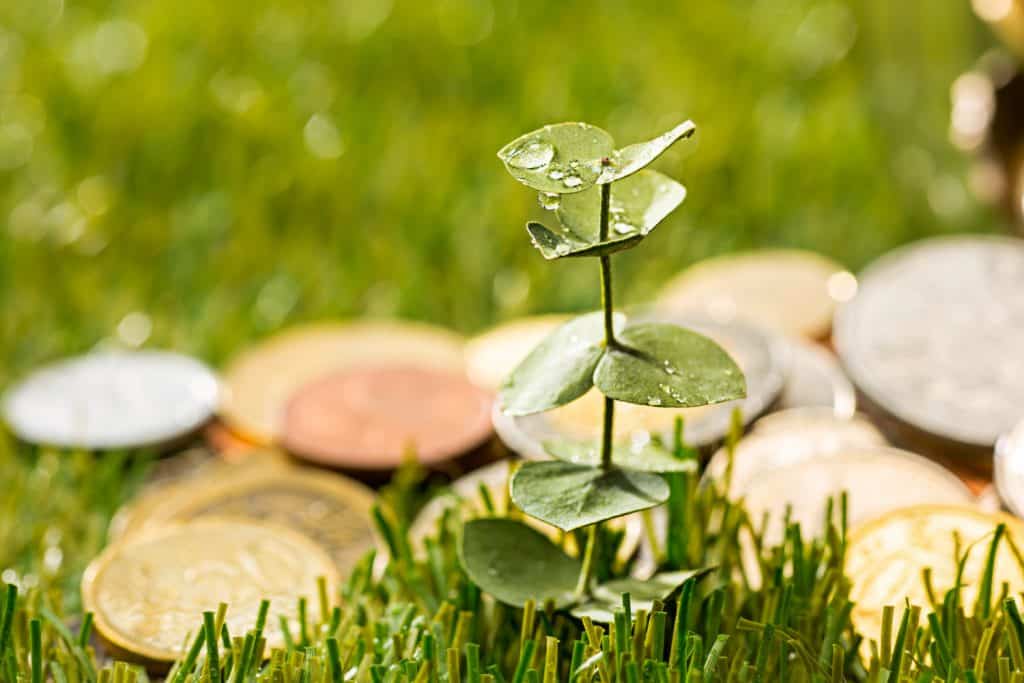
In This Article
Welcome to a world where entrepreneurship isn’t just about profit margins and market dominance; it’s about making a meaningful impact on the planet we call home. In 2023, the buzzword in the business world is ‘sustainability.’ Eco-friendly entrepreneurship has transcended its niche status, becoming a mainstream movement that’s reshaping industries and redefining success.
As climate change, resource depletion, and environmental degradation continue to escalate, there’s an increasing realization that businesses must play a pivotal role in steering our planet towards a more sustainable future. This paradigm shift is more than a trend—it’s a fundamental transformation in the way we conceive, launch, and operate businesses.
The Rise of Eco-Friendly Entrepreneurship
Picture this: consumers strolling through aisles, not just looking for the best deal, but actively seeking products and services that align with their environmental values. This shift in consumer behaviour is at the heart of the rise of eco-friendly entrepreneurship. People are no longer content with businesses merely paying lip service to sustainability; they want tangible actions and measurable impacts.
Governments across the globe are joining the chorus for eco-friendly practices, introducing policies and incentives that reward businesses committed to reducing their ecological footprint. The regulatory landscape is evolving, nudging entrepreneurs to rethink traditional business models and incorporate green practices into their core strategies.
This shift isn’t confined to a particular industry; it’s a seismic wave touching everything from manufacturing to tech, from fashion to food. Entrepreneurs are realizing that adopting eco-friendly measures isn’t just about compliance—it’s a smart business move. It’s about future-proofing your enterprise against the evolving expectations of consumers and the ever-tightening grip of environmental regulations.
The rise of eco-friendly entrepreneurship is a testament to the collective realization that businesses can no longer thrive in isolation from the environment. In fact, success in the business landscape of 2023 is intricately linked to a company’s ability to embrace and champion sustainable practices. It’s not just about doing less harm; it’s about actively contributing to the well-being of the planet.
Benefits of Eco-Friendly Entrepreneurship
In the world of entrepreneurship, going green isn’t just a moral choice; it’s a strategic decision with a myriad of tangible benefits that go beyond saving the planet. As we navigate the business landscape of 2023, the advantages of eco-friendly entrepreneurship are becoming increasingly evident.

Environmental Impact
The most obvious benefit of embracing eco-friendly entrepreneurship is the positive impact on the environment. By adopting sustainable practices, businesses can significantly reduce their carbon footprint, conserve resources, and contribute to the preservation of ecosystems. This isn’t just about earning green credentials; it’s about actively participating in the global effort to combat climate change and protect our planet for future generations.
Economic Advantages
Contrary to the perception that eco-friendly initiatives are costly, many businesses are discovering that going green can lead to substantial economic advantages. Energy-efficient technologies, waste reduction measures, and sustainable supply chain practices often result in cost savings over the long term. Moreover, as consumers increasingly prioritize eco-friendly products and services, businesses that align with these values find themselves tapping into a growing market, leading to increased profitability.
Enhanced Brand Image and Reputation
In an age where information is readily accessible and consumers are more discerning than ever, a positive brand image is crucial. Embracing eco-friendly entrepreneurship allows businesses to differentiate themselves from competitors, build trust with environmentally conscious consumers, and enhance their overall reputation. Consumers are more likely to support businesses that demonstrate a commitment to social and environmental responsibility, translating into long-term brand loyalty.
Eco-Friendly Business Practices
The transition to eco-friendly entrepreneurship involves implementing specific business practices that prioritize sustainability. These practices not only contribute to a healthier planet but also bring about operational efficiencies and financial benefits.
Sustainable Supply Chain Management
One of the fundamental pillars of eco-friendly business is adopting a sustainable approach to supply chain management. This involves ethically sourcing raw materials, reducing waste in the supply chain, and ensuring that suppliers adhere to environmentally responsible practices. A sustainable supply chain not only minimizes the environmental impact but also enhances the resilience and reliability of the overall business operation.
Energy Efficiency
Energy consumption is a significant contributor to environmental degradation. Eco-friendly businesses prioritize energy efficiency by adopting renewable energy sources, implementing energy conservation measures, and investing in technologies that reduce reliance on non-renewable resources. Beyond the environmental benefits, energy-efficient practices often lead to lower operational costs, providing a win-win scenario for the business and the planet.
Waste Reduction and Recycling
The linear ‘take, make, dispose’ model is no longer sustainable. Eco-friendly businesses embrace circular economy principles by reducing waste generation and promoting recycling. Implementing zero-waste initiatives not only minimizes the environmental impact of business operations but also demonstrates a commitment to responsible waste management, contributing to a cleaner and healthier planet.
The Future of Eco-Friendly Entrepreneurship

As we stand on the cusp of the future, the trajectory of eco-friendly entrepreneurship points toward a landscape where sustainable practices are not just an option but an imperative. The ongoing innovations and emerging trends in this realm are shaping a future where businesses play a central role in building a more sustainable and resilient world.
Emerging Technologies and Innovations
The future of eco-friendly entrepreneurship is deeply intertwined with technological advancements. From breakthroughs in renewable energy sources to the development of more sustainable materials, technology is becoming a catalyst for change. Innovations such as artificial intelligence and the Internet of Things are being harnessed to optimize resource use, improve energy efficiency, and enhance overall sustainability in various industries. The convergence of technology and sustainability is creating unprecedented opportunities for businesses to innovate and thrive in an eco-conscious world.
Global Collaboration and Partnerships
The challenges we face are global, and so must be the solutions. The future of eco-friendly entrepreneurship involves increased collaboration and partnerships on a global scale. Businesses are recognizing that addressing environmental issues requires collective action, and cross-industry cooperation is becoming the norm. International efforts for sustainable development, combined with collaborations between governments, businesses, and non-governmental organizations, will play a crucial role in shaping a future where eco-friendly practices are the norm rather than the exception.
Regulatory Evolution
The future regulatory landscape will likely see a continued emphasis on environmental sustainability. Governments are expected to enact more stringent regulations, providing both incentives for eco-friendly practices and penalties for non-compliance. This regulatory evolution will further drive businesses to integrate sustainable practices into their core operations. Entrepreneurs who proactively adapt to and embrace these evolving regulations will be better positioned for success in the future business environment.
Consumer Empowerment and Education
As consumers become more empowered and environmentally conscious, businesses will need to step up their game in terms of transparency and education. The future of eco-friendly entrepreneurship hinges on businesses effectively communicating their sustainable initiatives, sourcing methods, and overall impact. Entrepreneurs who invest in consumer education and engagement will not only meet the demands of the current market but also pave the way for a more environmentally literate and responsible consumer base in the future.
Conclusion
In the grand narrative of business evolution, the conclusion drawn from the rise of eco-friendly entrepreneurship is clear: sustainability is not a passing trend but a fundamental shift in the way we do business. As we’ve explored the benefits, challenges, and current practices of eco-friendly entrepreneurship, it becomes evident that this isn’t just a niche for environmentally conscious enterprises—it’s a mainstream movement that is reshaping industries and redefining success.
In conclusion, as we navigate the challenges and opportunities on the horizon, it’s clear that eco-friendly entrepreneurship is not just a business strategy—it’s a commitment to a future where profitability and environmental stewardship go hand in hand. So, as entrepreneurs, innovators, and consumers, let’s collectively embrace the journey toward a more sustainable, resilient, and prosperous future.



